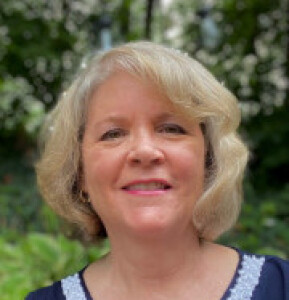Jean-Marie Galing's collections
Sustainable Textiles
<p>Sustainability is about using techniques that allow for continual reuse of resources. Why might textile designers want to reuse scraps or reclaim waste fibers? What other things that get thrown away could be reused as part of a woven textile? </p>
<p>ART MAKING CHALLENGE: Incorporate something recyclable in a hand-woven textile. Consider color, texture, and how well it will perform for a particular purpose. Would you combine the recycled items with traditional yarns or just use recycled items? Which method is likely to get the results you want?</p>
 Jean-Marie Galing
Jean-Marie Galing
12
Outside Fun
<p>See: Where are these people? What are they doing?</p><p>Think: Have you ever done something like that outside? </p><p>Wonder: I wonder what it would be like to go there. What would I see, smell, taste, touch, or hear?</p><p>Choose an image and imagine yourself being in that place. Then use that as inspiration for a drawing, painting, or collage. </p>
 Jean-Marie Galing
Jean-Marie Galing
11
Museum Architecture
<p><em>How does the design of a museum . . . </em></p>
<ul><li>reflect the time in which it was built?</li><li>reflect its purpose?</li><li>reflect the values of society?</li><li> fit in (or not) with the surrounding community? </li></ul><p><em>How does the interior design affect the way people experience the space?</em></p>
 Jean-Marie Galing
Jean-Marie Galing
30
Art from Memories
<p>Compare and contrast artworks by William Christenberry and Robert Rauchenberg:</p>
<ul><li>How do they depict the passage of time? </li><li>How are events or environments represented?</li><li>What do these images communicate about control or loss of control?</li></ul>
<p></p>
 Jean-Marie Galing
Jean-Marie Galing
12
Modular Designs
<p>Observe and discuss selected images. . . </p>
<ul><li>What shapes or forms are combined in each image?</li><li>What purpose do you think it was designed for? Why do you think that?</li><li>What do all the images have in common?</li></ul><p>After discussion, construct a definition of the term "modular."</p>
<p>ART MAKING CHALLENGES: </p>
<ul><li>Create a modular sculpture for a community space using cut and folded paper or tag board.</li><li>Draw a modular design for a building with a specific purpose.</li><li>Design modular storage for a small apartment. </li><li>Design modular furniture that could be rearranged for different purposes. </li></ul><p></p>
 Jean-Marie Galing
Jean-Marie Galing
15
Louise Nevelson
<p>Did you know that Louise's dad owned a lumber yard? No wonder she enjoyed creating wood assemblages.</p>
<p>Look at a selected sculpture with a partner and discuss:</p>
<ul><li>What do you see?</li><li>How is it arranged?</li><li>What does it make you think of?</li><li>What kind of meaning or story can you find in the sculpture?</li><li>How did Louise <em>unify</em> her sculptures? (UNITY is when all the parts work together to create a cohesive artwork.)</li></ul><p></p>
 Jean-Marie Galing
Jean-Marie Galing
13
Posters, Pins & Postage for a Cause
<p>Analyze selected images and discuss:</p>
<p></p>
<ul><li>What is the cause or social issue?</li><li>How has the artist/designer combined text and image to communicate a message?</li><li>What visual qualities make an image effective or not?</li></ul><p></p>
 Jean-Marie Galing
Jean-Marie Galing
29
New World Foods
<p>These foods were "discovered" by explorers who traveled to the "New World" (North, Central, and South America). They brought back seeds and introduced these foods to people in Europe. What effects do you think this had on Europeans? </p>
<p>Examine drawings of each food. How did the artist use line to show texture and/or value? </p><p>Examine the stamps: How did the artist use colors and shapes to create a design that is clear on a tiny stamp?</p>
<p><br /></p>
<p></p>
 Jean-Marie Galing
Jean-Marie Galing
24
Contemporary & Historic Architecture
<p>How does the past influence the present and future? Compare forms in contemporary architecture with those of buildings from ancient and Renaissance times. What similarities can you find? </p>
 Jean-Marie Galing
Jean-Marie Galing
32
Human Figure
<p>This collection supports learning in the Grade 4 gesture drawing and wire sculpture lessons. Activities:</p>
<ul><li>Realism vs. Abstraction: students sort sculptures of the human figure into two categories (realistic or abstract). Describe the ways that some artists abstract the human figure.</li><li>Compare contrast 2D/3D: identify the shapes an artist used to portray the human figure in a gesture drawing, then identify the equivalent forms used in a sculpture. Record findings in a T-chart.</li></ul><p><br /></p>
 Jean-Marie Galing
Jean-Marie Galing
20
Medallions
<p>Work with a partner or partners to analyze each object:</p>
<ul><li>What do you think the symbols mean?</li><li>Are there words that help describe it?</li><li>What patterns can you find?</li><li>Does the design show bilateral symmetry, radial symmetry, or is it asymmetrical?</li></ul><p>ART MAKING CHALLENGE: Design a medallion to commemorate something important to you. Some possibilities:</p><p></p><ul><li>An accomplishment</li><li>A special event you participated in</li><li>A family tradition</li><li>A personal interest</li></ul><p>The final artwork could be a drawing, painting, collage, clay slab, or foil repousse.</p><p></p>
 Jean-Marie Galing
Jean-Marie Galing
28



